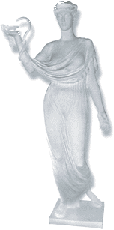

Ministry of Public Health and Social Development of RF
Russian Academy of Medical Sciences
Siberian Branch of Russian Academy of Medical Sciences
Siberian Branch of Russian Academy of Sciences
Medical Polar Fund “Science”
The Northern Forum



|
||

|
International Union for Circumpolar Health Ministry of Public Health and Social Development of RF Russian Academy of Medical Sciences Siberian Branch of Russian Academy of Medical Sciences Siberian Branch of Russian Academy of Sciences Medical Polar Fund “Science” The Northern Forum |
 
|
 |
The North place in geo planetary world. Urbanization traditions and problems
Objectives: This session will provide an overview of some of the significant achievements of the Aboriginal Women’s Health and Healing Research Group and future directions, while providing participants with an opportunity to dialogue with community based researchers and share new knowledge in this exciting and cross-cutting venture. Gender based analysis and developments for an Aboriginal Women’s Health and Healing Strategy will be introduced.
Design: In late 2005 and after many years of diligent volunteer work by a core group of committed Aboriginal women, the Aboriginal Women’s Health and Healing Research Group entered its second phase of development, with the launch of the site office at the University of British Columbia and the recruitment of an Executive Director. There is recognition that a Health and Healing Strategy for First Nations, Inuit and Métis women is needed in order to respect diversity and reduce health disparities while promoting gender equality.
Results: First Nations, Inuit and Métis women suffer from the poverty of subsistence (due to food insecurity, climate change, lower average incomes than men, lone parenting, homelessness, matrimonial property provisions in the Indian Act); poverty of sexual and reproductive health (due to environmental contaminants, adolescent pregnancies, fetal alcohol spectrum disorder, smoking, sexual abuse, sexually transmitted diseases like HIV/AIDS, cervical cancer); poverty of identity (due to Bill C-31, forced urbanization, the residential school legacy); poverty of safety and security (due to spousal and family violence, incarceration, disabilities, motor vehicle accidents, poisonings, diabetes, poor drinking water); poverty of mental health (due to historic trauma, depression, suicide, substance abuse) poverty of participation (due to discrimination based on gender, race, class, sexual orientation and age; chronic health problems, burn-out) and poverty of power and knowledge (due to research gaps, capacity deficits, loss of culture and languages, gender inequality).
Conclusions: An Aboriginal Women’s Health and Healing Strategy would address the need for equal health and healing opportunities and outcomes, eliminating discriminatory and exclusionary practices foisted on First Nations, Inuit and Metis women and supporting balanced gender relations. This session will seek ways to adopt Aboriginal perspectives in a gender-based analysis (GBA) framework which would then be suitable for adaptation in First Nations, Inuit and Metis communities and in all Aboriginal policy.
Note. Abstracts are published in author's edition
|
Mail to webmaster
Main page |
© 1996-2005, Siberian Branch of Russian Academy of Sciences, Novosibirsk
Last update: 06-Jul-2012 (11:52:05)